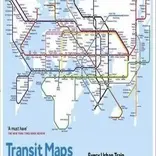Industry welcomes UK seafarers’ training support

A new report issued by Frazer-Nash Consultancy for the Department of Transport, recommends that the Support for Maritime Training (SMarT) scheme should be increased to ensure that UK training costs are in line with other northern European countries, who not only provide assistance for maritime training but more generally cover the full cost of university education.
In light of the report, Nautilus International warns UK Government that seafarers will continue to decline, adversely impacting defence and economic interests, unless increased levels of support are met.
Findings
-
The review shows the wider economy gains significantly more from qualified officers than it contributes to their training. There is also a strategic defence requirement for qualified seafarers which must include skilled ratings as well as officers.
-
SMarT is a valuable incentive but has lost some of its value in real terms, due to increases in training costs including tuition fees.
-
Without increased levels of government intervention, the UK seafarer population will continue to decline. If this trend continues, it will be detrimental to the economy and defence interests of the UK. Therefore the authors support increasing the number of seafarers in the UK.
-
During this review we have been unable to find consistent and integrated management level information about the progression of trainee ratings and cadets. It is our view that better data management of the progress of trainees and seafarers is of high importance to the industry and government, to assist in strategic and tactical decision making for the future of the industry.
Recommendations
-
Retaining of SMarT funding. If the desire is to increase the number of trainees the subsidy should be increased. Depending on the size of the increase, this could have the effect of either slowing or reversing the downward trend in the size of the seafarer population.
-
Development of an industry database to collect data from colleges and sponsors to track trainees and seafarers through their careers, to provide good quality robust data on which government and industry can base strategic and policy decisions.
-
Changes to the current arrangements for funding ratings training.
-
A number of smaller technical changes to the operation of SMarT and some areas for further study.
The maritime professional’s trade union, Nautilus International, has welcomed the report findings. Nautilus General Secretary, Mark Dickinson, commented:
“Its core messages are very straightforward and it presents the government with a simple choice: do nothing and watch our seafarer numbers continue to decline, or increase support for training a workforce which will richly repay the investment made in them. It is now imperative that the government acts urgently on these recommendations.”
The UK Chamber of Shipping also welcomed the report’s suggestion that the funding level should be increased in order for UK training to be more competitive with that provided in other European countries.
“The UK Chamber welcomes the recommendation that the Government give a long-term commitment to SMarT funding,” comments Tim Springett, the chamber’s policy director, employment and legal. “This will assist employers greatly in devising their crew training and employment strategies and give greater certainty to maritime education and training institutions when making decisions on infrastructure investments.”
Explore more by reading the full report:
















![AIRBUS A380 [MORE THAN 600 PASSENGER’S CAPACITY PLANE]](https://cdn.tinn.ir/thumbnail/4jCp4EQvCU0b/IjHVrSYQrIAqIzXuTzADR7qLYX4idQT4nfq__26E5SCUPLMqfhWkWajvuO9Wfq1ql1TjV4dhkrHliNQU82kMpo2NNftT_NGEwHc9KXtN_rk731bmifa2IQ,,/airbus-a380-structure1.jpg)

Send Comment